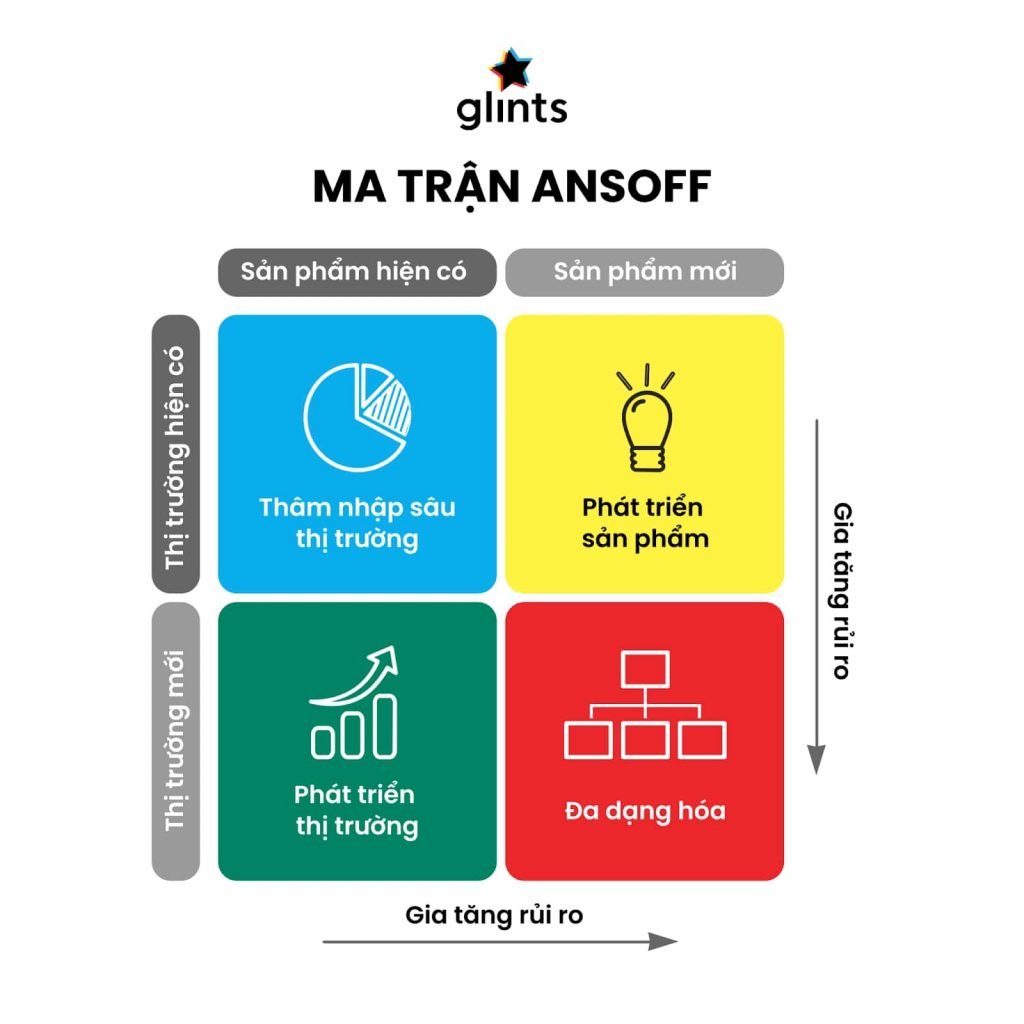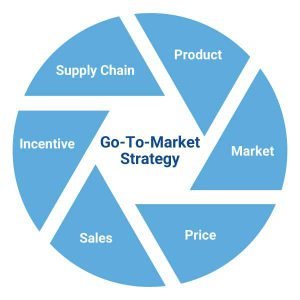Go-To-Market Strategy: The Business Success Catalyst
In today’s fiercely competitive marketplace, pinpointing and accurately focusing on the target market is a decisive factor for a business’s success with a well-crafted go-to-market strategy. A well-crafted go-to-market strategy acts as the key to effectively communicating your business’s value propositions to potential customers, thereby optimizing business performance.

Nội dung
- Effective Target Market Analysis
- Factors Influencing the Choice of Go-To-Market Strategy
- Identifying the Right Target Market Segments
- Crafting Value Propositions Aligned with Target Market Needs
- Choosing Appropriate Channels to Reach the Target Market
- Focusing on Differentiation to Attract the Target Market
- Measuring the Effectiveness of the Go-To-Market Strategy
- Conclusion
Effective Target Market Analysis

Identifying Customer Needs and Desires
The initial step in developing a go-to-market strategy involves precisely identifying the needs and desires of the target market. This process requires extensive research, including surveys, direct interviews, and gathering data from various sources.
For instance, AsiaLift Group, a company specializing in modern elevator solutions, conducted thorough surveys on customer needs within the construction and real estate sectors. They discovered that beyond performance and safety, customers were deeply concerned about aesthetic design, eco-friendly features, and excellent after-sales service.
Evaluating Shopping Behaviors and Preferences
Understanding the shopping behaviors and preferences of customers is crucial. Businesses need to explore how customers seek information, make purchasing decisions, and their product usage habits. This knowledge helps in tailoring a more appropriate go-to-market approach.
For example, BeGroup, after meticulous research, found that their target customers in the interior design sector frequently use social media and online platforms for inspiration. Consequently, BeGroup focused its marketing efforts on digital channels and building an online community for their customers.
Demographic, Psychographic, and Geographic Analysis
Additionally, businesses should thoroughly analyze the demographic (age, gender, income, education level), psychographic (beliefs, values, lifestyle), and geographic (location, urban or rural) characteristics of their target market. This information aids in understanding the customer base better and devising a fitting go-to-market strategy.
Understanding Market Size and Competitive Landscape
Finally, accurately determining the target market size and the competitive landscape within the industry is vital. This helps businesses assess growth potential and plan resources efficiently for effective competition.
Factors Influencing the Choice of Go-To-Market Strategy

Product or Service Nature
The nature of the product or service greatly influences the choice of go-to-market strategy. High-tech products may require educating the market and detailed technical information dissemination, while daily consumer goods might better fit with traditional marketing and widespread advertising strategies.
Target Market Development Stage
The target market’s development stage also plays a crucial role in deciding the go-to-market approach. For emerging markets, the focus should be on educating and generating demand for the product or service. In contrast, for developed markets, competing and differentiating strategies become more significant.
Business Resources and Capabilities
The financial, human, and marketing skills of a business also affect the go-to-market strategy choice. Large enterprises with abundant resources might employ a multi-channel marketing strategy and invest heavily in advertising. In contrast, smaller businesses might need to focus more on targeted marketing strategies for specific target market segments.
Identifying the Right Target Market Segments

Demographic-Based Segmentation
After analyzing the market, businesses should segment it based on shared characteristics. A popular method is demographic segmentation, such as age, gender, income, and education level.
Lifestyle and Value-Based Segmentation
Businesses can also segment the market based on lifestyle and core customer values. This is particularly useful for products and services related to personal lifestyle and values.
Behavioral and Needs-Based Segmentation
Lastly, segmenting the market based on customer behavior and specific needs allows businesses to focus on customers with similar requirements and offer tailored solutions.
Crafting Value Propositions Aligned with Target Market Needs

Unique and Differentiating Value Propositions
The value proposition encompasses the benefits and distinctive features of a product or service conveyed to the target market. For success, a business’s value proposition must accurately meet the identified needs and desires of the target market, standing out from competitors to attract customer attention.
Effective Communication of Value Propositions
Once identified, the value proposition should be effectively communicated to the target market. This requires coordination among marketing, sales, and communication activities to ensure a consistent message across all channels.
Choosing Appropriate Channels to Reach the Target Market

Traditional and Digital Communication Channels
Businesses need to select market access channels that align with the characteristics and needs of the target market, ranging from traditional media to digital platforms.
Promotional Programs and Discounts
Effective promotional programs and discounts can also attract and retain target market customers. However, businesses should use this strategy cautiously to avoid impacting profitability and brand positioning.
Building Customer Relationships
Building and maintaining strong relationships with target market customers is essential. This can be achieved through customer care programs, direct interactions, and creating valuable content for customers.
Focusing on Differentiation to Attract the Target Market

Key Performance Indicators
Differentiating Products or Services
In a competitive environment, differentiating products or services is crucial. Businesses should leverage unique attributes, strengths, and core values to create a sustainable competitive advantage.
Customer Experience Differentiation
Moreover, focusing on creating a unique and differentiated customer experience is vital. This includes the interaction process before, during, and after purchasing a product or using a service.
Measuring the Effectiveness of the Go-To-Market Strategy
Evaluating the effectiveness of the go-to-market strategy involves measuring key indicators such as brand awareness, sales growth, return on investment (ROI), and customer satisfaction.
Adjusting Strategy Based on Customer Feedback
As markets evolve, businesses must closely monitor feedback and behaviors of the target market. Based on this feedback, adjustments to the go-to-market strategy may be necessary to better align with changing customer needs and desires.

Conclusion
In summary, a successful go-to-market strategy plays a critical role in a business’s success. By accurately defining the target market, crafting aligned value propositions, choosing effective access channels, and focusing on differentiation, businesses can optimize business performance, build a strong brand image, and secure a sustainable competitive advantage.